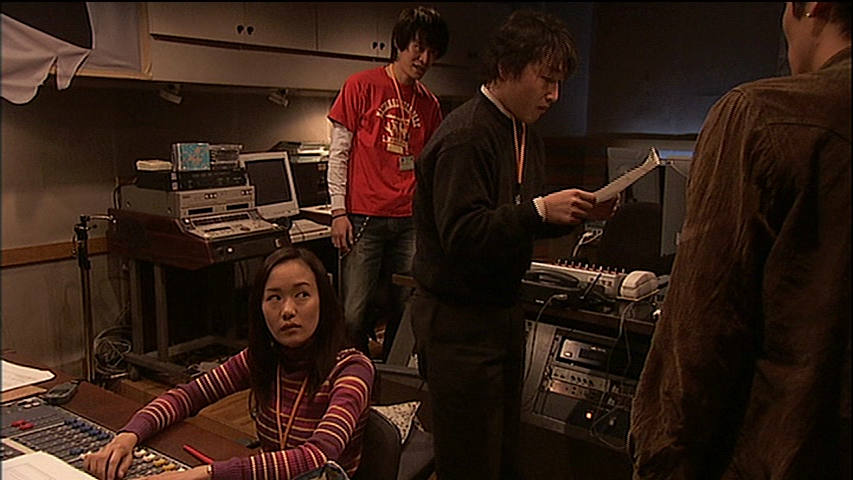Last Updated on October 6, 2020 by rob
An obnoxious phone in DJ named Shinjo (Ryuta Sato) broadcasts his late-night chat show – in which listeners are invited to reveal on air the meanest thing that’s ever been said to them – from a supposedly haunted studio. But what should be a night of easy listening ends up persistently undermined by an unknown voice on the line accusing the host of being a liar. As Shinjo’s self-control begins to snap he starts to suspect that he’s being set up by his small crew for the way he’s treated them.
This is the kind of under the radar genre entry it’s a real pleasure to discover. Writer/director Nakamura does a first class job in getting us to identify with Shinjo’s perspective so that we share his suspicions too. Is it someone playing tricks from the control room; maybe the co-worker (Mai Takahashi) whom Shinjo seduced and then violently dumped? Or maybe it’s one of the callers with intimate knowledge of Shinjo’s distinctly unsavoury past? A series of cunningly deployed flashbacks reveal what a bastard Shinjo’s been to his crew. Later revelations stretch even further back into the DJ’s past but Sato’s fine performance displays just enough self-awareness of what a monster he’s been that he never entirely loses our sympathy.
The small ensemble cast playing the production team are also excellent. Each or all could be the culprit but it’s impossible to know for sure. The low-key performances are pitched just right but best of all is Nakamura’s assured grip on the material and the way the film’s tone successfully straddles that line between paranoia of the ‘Are-they-really-all-out-to-get-me?’ variety with a creeping sense of dread and unease that there might be something more going on here. As we watch we begin to ask ourselves if this is really a ghost story or a tale about the humbling of a man framed in such a way that it merely looks like a ghost story. The film keeps you wondering right up to its chilling, blackly comic final shot. Excellent.


